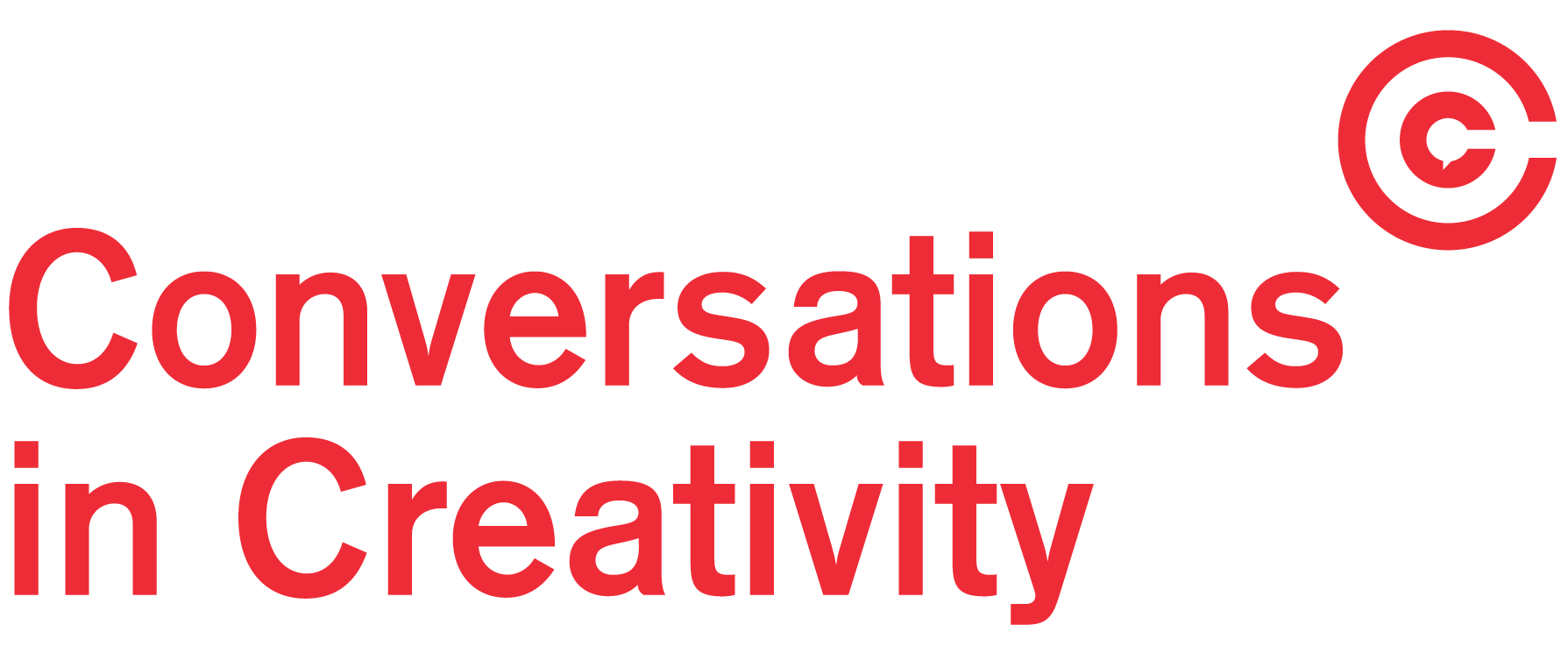Conversations in Creativity - Aziz Ibrahim
06 August 2020
Conversations in Creativity is Creative Lancashire’s ongoing series of insightful dialogues with practitioners from across the disciplines. Music journalist John Robb recently interviewed musician Aziz Ibrahim for our series. The conversation focused on adaptability, the willingness to learn, and what drives Aziz in his work.
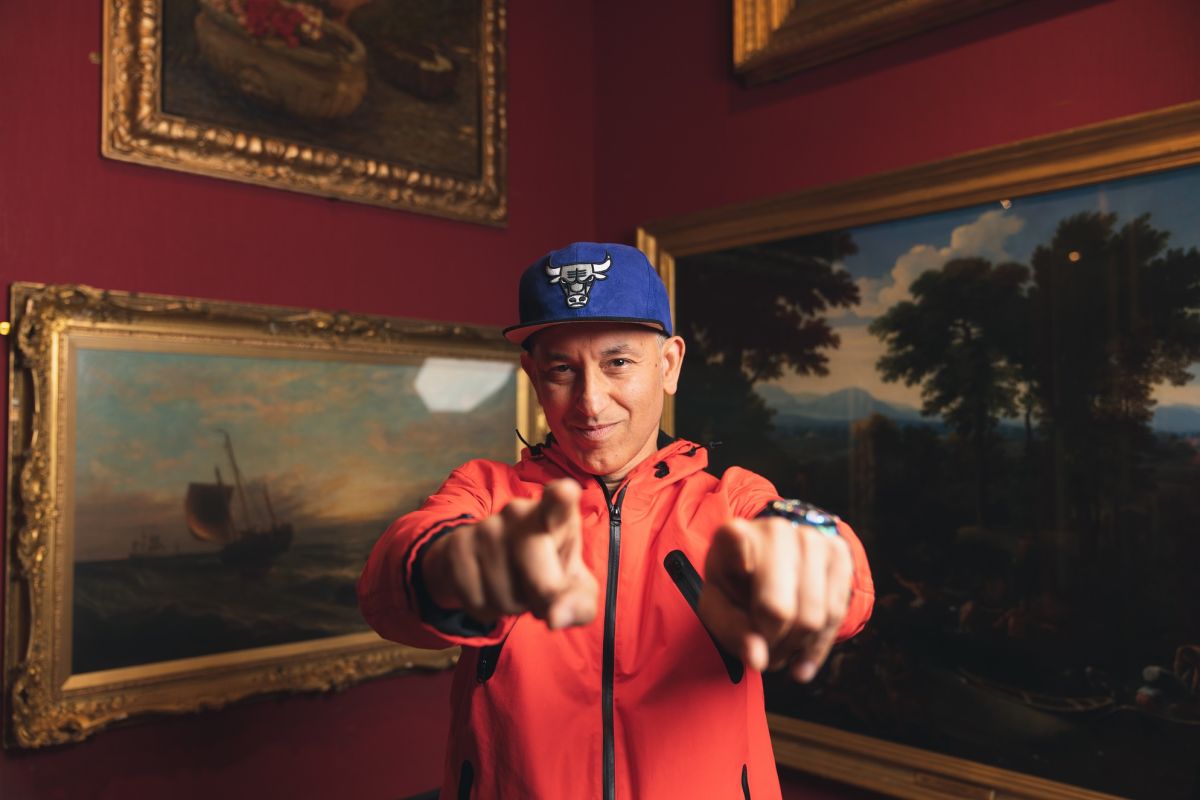
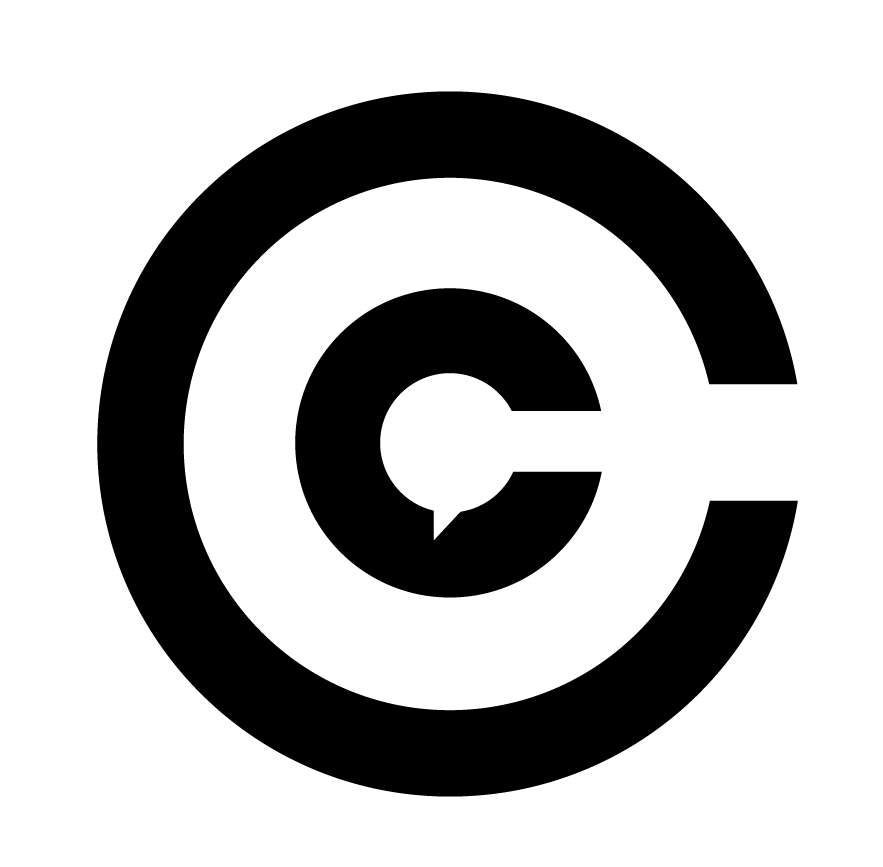
For this Conversations in Creativity series, we are exploring how creative practitioners in the North West of England are responding to current world events. From climate change to Covid-19, human rights to economic uncertainty, we discover how creatives are transitioning and transforming their work and outlook.
Aziz Ibrahim is a musician, composer, producer and the founder of Indus records. He’s been described as a “guitar god” and “lord of the strings” and is known for his work as a guitarist for Simply Red and The Stone Roses. Aziz still collaborates with Ian Brown (lead singer of The Stone Roses), as well as other artists. He recently launched a new single, The Key of Three, with more tracks due out later this year.
John Robb (Louder than War), recently interviewed Aziz for Creative Lancashire. the conversation is focused around adaptability and the willingness to learn, and how a love of music and the connection it brings, is what drive Aziz in his work. Read more below.

JR: This interview is for a series of pieces on North West artists and how they're dealing with the current situation and their response to lockdown. I mean, obviously with what the virus involves politically, and what the artist's part in that is. Let’s find out what you’re doing at the moment. I imagine you're still writing a lot, still playing a lot of guitar?
AI: I have my first single in probably 10 years coming out now. And it's a digital release. It's called a Key of Three. It's a solo piece, and it's an instrumental. And I also started looking at my social media. I mean, it's a complete change, I'm 56 and I'm old school in one sense, that I play an instrument which is a traditional instrument. It's not a digital instrument, I play guitar. It's something you have to put time and effort into to be able to play, and the practices of guitar bands, really those are old school things. You know, you've joined a band, and you're in a group, and as you well know, you get together with a bunch of lads and you make music. Today, we're faced with this thing where all those little practices don't work. You know? How do you translate that into hope? New technology is not that far advanced for you and I to say work on a tune together, to play simultaneously. And for people to hear that, you know, at the same time, synchronised, let alone four people or five people, or even more than that. Live shows we can't do and if we can, it will be to a fifth of the audience, maybe spaced, if the venues are even open.
There was such a lot posted about venues like Gorilla and The Deaf Institute being saved, as a buyer came in and so forth. But what about the venues below them? You know, how are they gonna survive? How can they put on shows? How long does this go on for?
You've got to change, you've got to change with the times, you've got to adapt. You can't wait, sit around going, "let's wait for the venue to open again. And then I'll book a gig." People are booking shows and tours for next year. And obviously, Ian Brown's tour is booked for May, I think. Dates are rescheduled. All the big bands will be rescheduling. But even if you are doing shows, another trend I've noticed is, like, Live Nation's policies (online ticket provider), and the deals that they're doing with artists now. The percentage that they want, the take they want of almost everything across the board. And the amount of work that's on you, and the insurance costs that's on you, as an artist. So, how is a small band going to do that? How's a band with no record deal going to manage that. So many things have changed.
I've thought to myself, I've got to be prolific in making music now. I've been lazy, and I've been doing shows and riding off the comfort zone of, "Hey, weren't you in this band? And were you in that band? So and so is gonna come to your show, maybe." It's a different thing. And I'm not ashamed to say it, but young bands are leading the way. Or maybe the labels are showing them how, I don't know if the label is showing them how. I think labels are watching the YouTubers and the gamers (laughs) and learning from them, and following that.
But personally, I think, embrace the digital and approach it in that way that [doesn’t follow the old formula of] "Hey, I'm a group, an artist or a band. I'm going to record X amount of time spent recording then X amount of time spent promotion wise, then X amount of time spent touring, and then the cycle starts again." Back in the studio recording, promotion, touring. I personally don't think that works anymore. I think it's all about content. I think it's about your making of content. And keeping that interest and building your audience is far more important, because MTV is gone. This is not MTV world anymore.
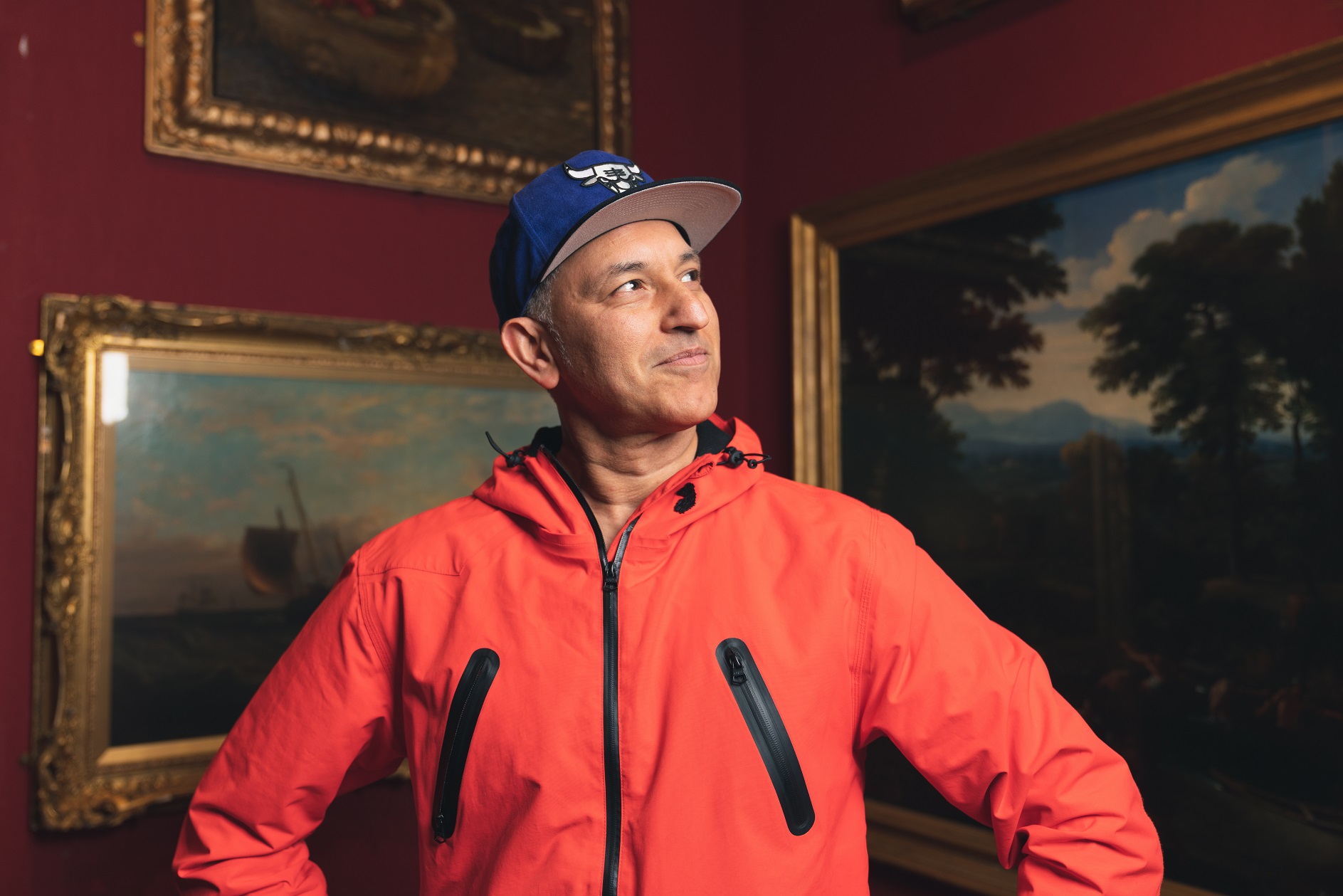
AI: I don't think that talking about albums is my priority anymore, because albums are a thing, a concept that came from vinyl. Filling 20 minutes of each side of a piece of vinyl. And yet here we are saying albums, when we haven't got a full 20 minutes on one side, and 20 minutes of another. And there's no reading all the information and all that fun that we went through, and the joy of who produced it, and who played on it, and what are these pictures? Now social media gives you so much information, if you can put it up online. And ... and if you want to create storyboards, you can put it on Pinterest. And if you want to engage you can talk to people through, you know, Snapchat, TickTock or whatever. If your age group dictates, you’re on Facebook, and other places you can go to. Sorry, John, I'm waffling on.
JR: No, no, actually, that's exactly what we need to be talking about here. You know, how does an artist operate in this period? And in a way, where you've been operating for years, is kind of the way the modern artist may have to operate. Maybe next month, maybe next year, who knows, we're not really in bands. The concept of a band, in this period, is almost an outmoded concept. It creates, it's creating other people digitally. Online, from a distance. Maybe we're fast forwarding into the future here.
AI: Well, I mean, that's a big subject matter in itself... don't you think... about bands, especially rock bands, what I call rock bands, that it just seems to be dying. That promoters are more interested in booking the kind of guaranteed ticket sale of the established band, and booking out festivals full of names. And all those artists are over 30. A lot of them are that age. They're not nurturing the young up and coming, who could be fulfilling the festivals and this digital age, because they grew up, they are growing up with it.
They’re kind of just relying on that income from those established old bands. And the younger bands, who are maybe embracing technology using new means of promotion, and they're not getting the chance. So, somehow the band thing, if you don't support younger artists, if you don't give them a chance, then obviously it'll be a dying profession, and the band thing won't happen. Or it'll be a different form of band, but maybe a band that works in a different way, where they're very adept at using digital technologies, and are very good at audience building.
These are things I'm learning here. So it's not like I'm an authority on them. All I'm saying is I'm an artist in lockdown, who's been in bands, and then found that he's sat at home. And he's got to fulfil himself some way, somehow.
So I thought, I'll start recording. What's my priority? I'm a musician. So let's make music. So I made an instrumental piece, something very easy to make. I gave it six weeks lead time into its release, [which was the 25th July 2020]. Didn't make a video, but felt that those things can still happen. Because until the next release, I can make different promotional tools, an acoustic version, or a ukulele version, you know. It just feeds the content. And it's about content. So, I watch YouTube and Twitch a lot. I'm kind of looking at the way that YouTubers and gamers engage, because they're the ones that I feel, wow, if you delve into it, you see the monetization. You see how they monetize things. They've joined Patreon or they've joined some other thing similar. And they're affiliates. And there's so many business aspects to it, that an artist can survive. You know, you can sit there and moan all day about "Spotify only paying me this and iTunes paying me that". That's not the only way. You learn, there are so many ways to monetize.
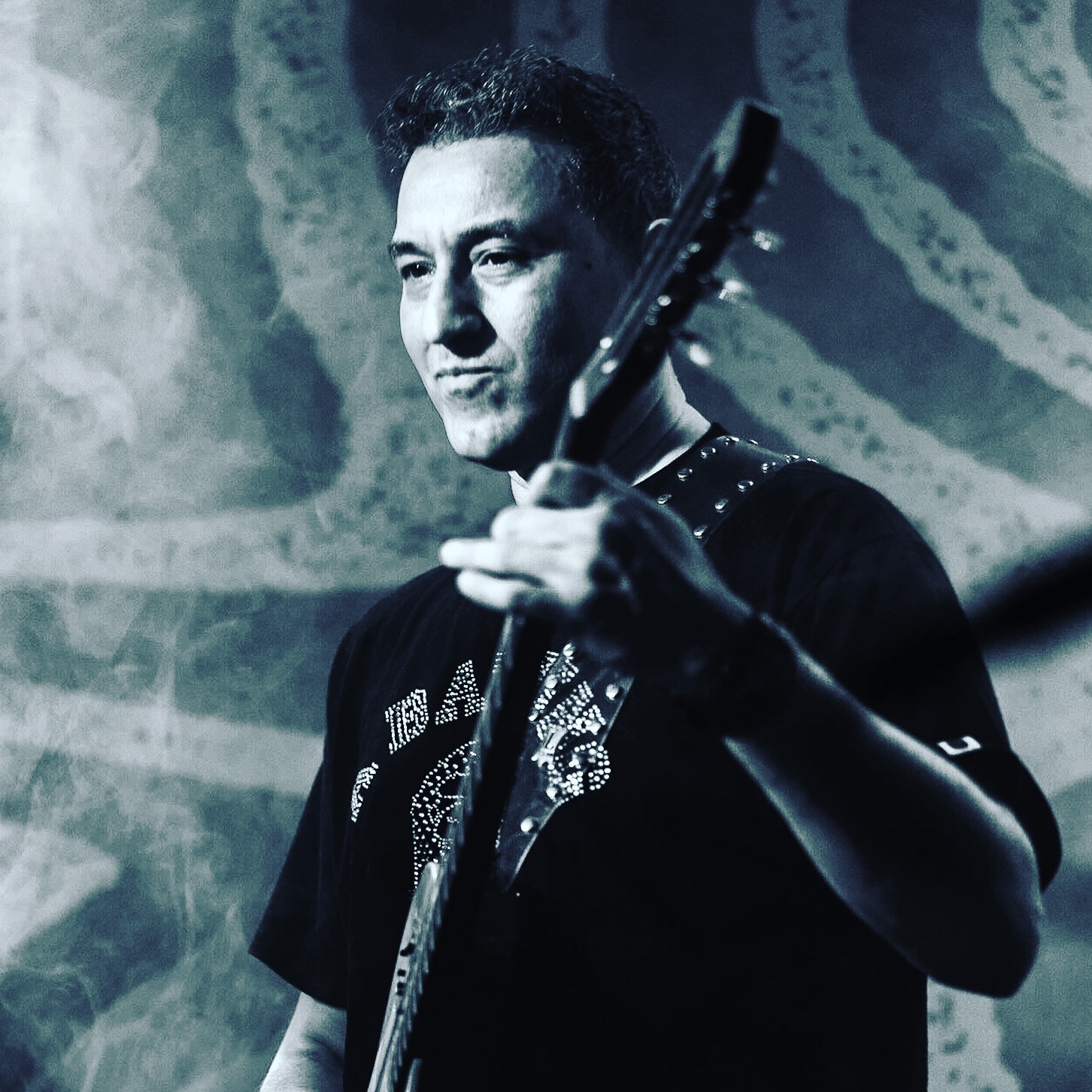
JR: So the modern artist thesis... It's about being adaptable. Does it change the way you actually even create the music?
AI: It does. Yeah. And like I said before, it would be a band concept, and then getting together and jamming things out and playing. You know, in the past, the band that I had was only a two piece band, which was my tabla player Dalbir Singh Rattan, and myself on guitar and vocals. So that two-piece thing was all about the chemistry between two musicians trying to outplay each other. But, you know, when we played it was actually about the performance. That's what I should have been recording, because we improvised every show and we played against each other and went off on tangents. And bands don't do that. This is like the Frank Zappa approach where you take a chance on stage, you don't stick to the regimented, you know, you press play and Ableton or Logic's playing X and or whatever your DAW, and you play your part. Because you're promoting an album."
I believe in giving a show to people and every show is different, because you interact and do something, take a chance, because you rely on your musicianship. Or, you just don't give a damn. You know, there's got to be that rock and roll element, which I've got to say, you know, I'm not like you, you're probably more of a free spirit than I am.Um, whereas I strive to be a free spirit and, and escape the bounds of culture, religion, peer pressure, you know, community so forth any then that stops me from being, you know, let that personality come out, which is where I find that element is in punk, first and foremost, and then out from there. I know it's a bit philosophical, but it really matters to me because, as you said, how making music, these are like the core elements.
Some people are more fortunate than others. And some people, you know, we all have our, you know, things to strive for. But for me, I'm saying this is what I have to strive for, is releasing myself, chemistry with other musicians. Now that's gone. Because I've got to send the parts to somebody and say, "What do you want you want to do". Or maybe now we can actually interact, you know, with social distancing. So I can do that, but not on a scale of like, four or five people. You know, maybe rehearsal rooms and recording studios will cater for that, but I'm a home recording artist now. I have my equipment around me. And I write, I've written a whole load of music actually, over the past three years, working with Mike Joyce. So basically, I've written a lot of material which I'm gonna release. And then I've written new material, because I've spent three years working with the Arts Council.
At the end of the day, I'm a musician and an artist, and I want to make music. So right now, the tools I've got will be an iPad, a laptop, or an old recording setup, whichever way works to make music recorded. But that music is only a part of the story today. That thinking about video footage and content. How to make content that interests people and how to make things that all the music is the basis, but letting people in on my story ... building a story. So, you see it's a different concept to "I am a band, let's go out and rock and roll and do this and, you know, smash a few guitars and play a few tunes". I can't do that right now, but what I can do is just be as creative as an artist and not be kind of single-minded about it. Kind of open up to new ideas and, like I said, I’m learning from YouTubers and gamers.
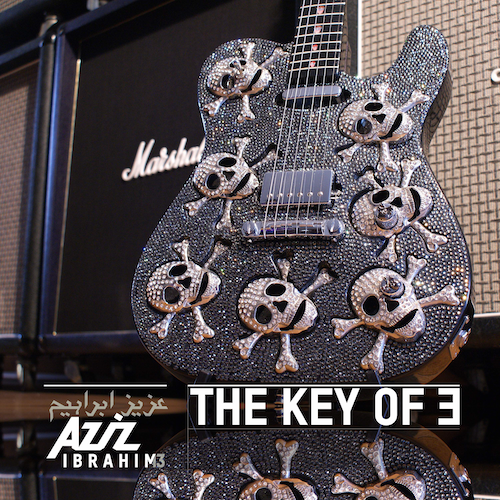
JR: So that pretty well sums it up innit. You have to adapt to the times. Music culture is always about technology as well. I mean, the seven inch single used to be as far as you get in technology. So, it's just another version of that in a sense, I guess. And we're living in very chaotic times as well, tumultuous times. There's a lot of tension in the world, a lot of madness in the world. Is this something that affects your creativity or is it something that your creativity manages to block out.
AI: When I first started out it was anger that drove me to play music, because I used to get stereotyped all the time. People just generalise. You're Pakistani, or you're Muslim, or you're this, you're that, therefore, you should play cricket and badminton. And you should stick to Bhangra and Bollywood. People label me, and it used to make me so angry. So I picked up the guitar, because it was the most rebellious symbol that I could think of. And you can make noise, like, really loud noise with it. And so began the journey.
Today, in this day and age, I'm listening all the time. I don't get as involved as maybe I should. I don't know, you know, I'm not Tom Morello. Not in that way. But that doesn't mean to say that I'm not proactive in my own ways, because I believe you can change people. For instance, like racism is at a height at this moment in time, I feel, and the #BlackLivesMatter (protests), how that's brought out the reactions that it has in people today. You know, you saw what happened in Burnley. You saw what happened in the States and so forth. Various kinds of reactions.
So, yeah, it affects me in a big way. But I think that there's different approaches and music is, for me, a universal passport. It's kind of, in a sense, you don't need a passport for music, to play music. You can play anywhere, anytime. Listen to it, play it. But you can travel with it. You can share. You can interact with people from Libya and Syria and China and North Korea, whatever, in terms of music. I mean, what they listen to might be what you're listening to.
I look at things as music being the universal bond and approaching people in a positive way to change their minds and attitudes. Or even changing myself, it might be my own attitude. You got to change, we all have to change. We all have to adapt and it's the way, again, it boils down to that thing, the willingness, the open mindedness to bring about change - It is about change. Maybe next year, it's not going to happen. You know, the things we expect, want to happen. Normality. Maybe the ... I hate saying that phrase “the new normal”, but maybe that's what it is. That if we start those practices now, they may lead to better things, at least to music still being alive, you know? And that's what I want, I don't want to see it die. I don't want to see the artists shying away from it. And, I think this day and age is kind of open to more musicians as well, because in the old days, don't you think that record labels and publishers used to prevent a lot of artists from performing an output and reaching people? Because they were the gatekeepers. Now, you know, it's a different story altogether.
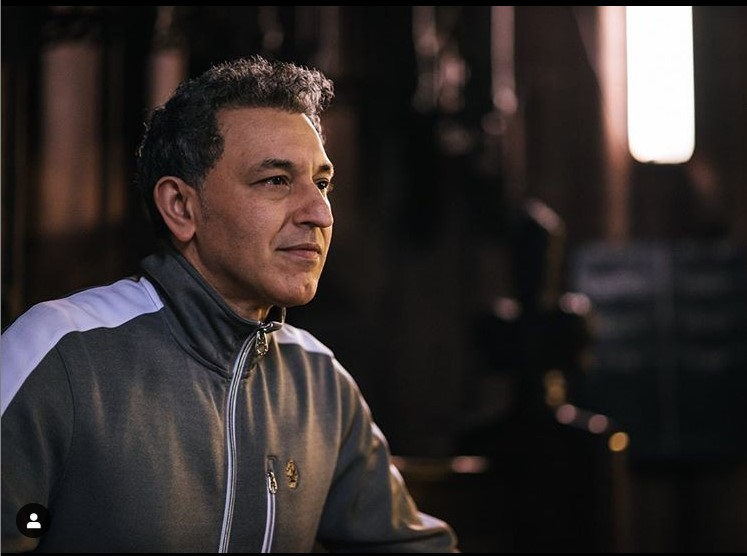
JR: Hmm, all the way around. Even ... even the live agents don't have any power now.
AI: Yeah, absolutely. Exciting times in a sense. I know it's not a great time. I lost all my work over these past few months. I was hard hit by it. As much as people like to think “Well, you did all those things and you should be rolling in it”.
You know, as Ian Brown said on my 50th birthday, I remember him saying, “Hey, this guy should be living in a mansion with a guitar-shaped swimming pool”. I laughed my socks off, when I heard that. But it says, you know, I only care about the guitar and the music and the playing. So, even if I'm in a small room, and this is where I can make music, I'm gonna make music, I'm still gonna do it. I'm still gonna output and if I can share any of these things with people, of how I do that. I've only just started. The next tune hopefully will be next month on my own record label, Indus Records.
And, I'm just about to start a YouTube channel, which is really important, but it's taken me a long time to get around to it. I'm using Spotify. No prejudice, no hatred, no animosity. I'm just going to use Spotify and see how that damn thing works. A lot of people already know and a lot of people say they know how it works. But, I think exploit these platforms, you know, is definitely the way without a doubt the way forward. And other things, you know, merchandise, mail order stuff. I'll get that going. Whatever it takes.
You can find Aziz's new single Key of Three on Spotify, Apple, Amazon, Deezer and Google Play.
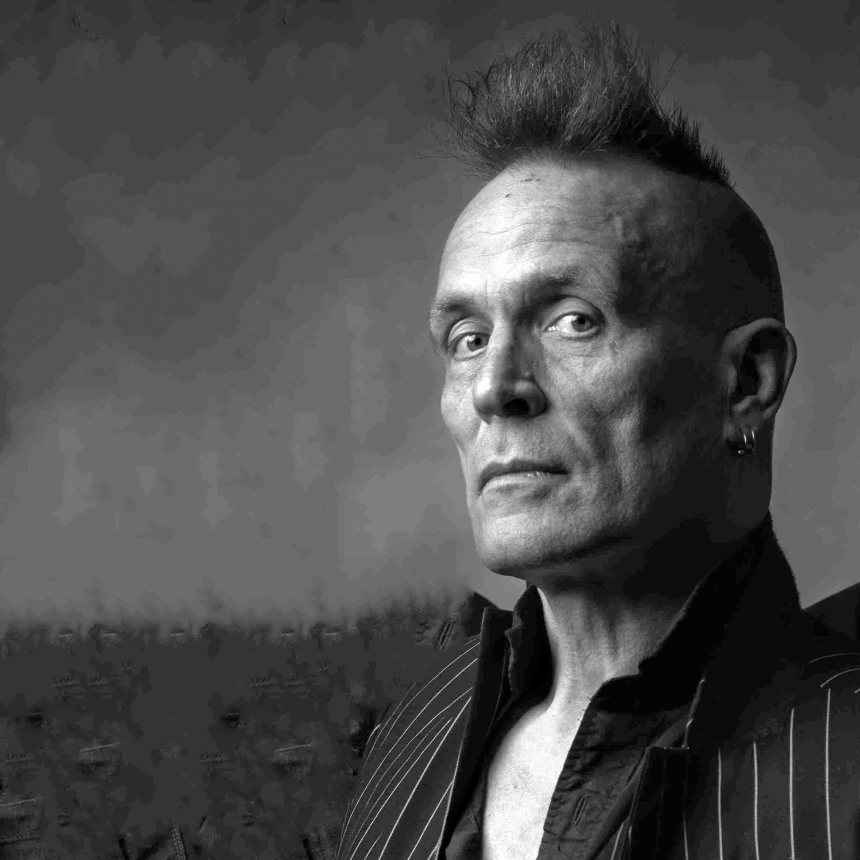
John Robb is a music journalist, TV and radio presenter and front man for the bands; The Membranes and Goldblade. He writes for and runs Louder Than War, an online music site and monthly magazine.
Conversations in Creativity
In 2011, Creative Lancashire with local design agencies Wash and JP74 launched ‘Conversations in Creativity’, a series of talks, insightful interviews and publications where creatives from across the disciplines explore how inspiration, often from around the world, informs process. Previous events and presentations have featured Wayne & Gerardine Hemingway,(Hemingway Design), Gary Aspden (adidas orginals), Pete Fowler (Animator & Artist), Donna Wilson (Designer), Cherry Ghost, I am Kloot, Nick Park (Aardman), Lemn Sissay, (Poet) and Jeanette Winterson (Author) - hosted by Dave Haslam & John Robb.
More information

